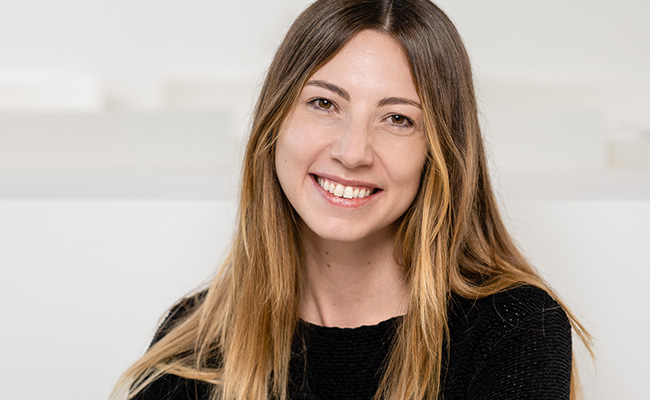PhD Claudia Kolm - Method Development / Molecular Diagnostic
"Science is a collective endeavor and that we do at ICC." Read about our expert!

The Interuniversity Cooperation Centre Water & Health shines through its outstanding researchers - one of them is the 33-year-old Claudia Kolm from Lower Austrian. In July 2020, she completed her doctorate on "Development of novel approaches for the molecular detection of health-relevant bacteria in water". The expert in rapid test methods and aptamer-based detection received a scholarship from the Austrian Academy of Sciences
Facts
Topic Diss.: Development of novel approaches for the molecular detection of health-relevant bacteria in water
Supervisor: Andreas Farnleitner & Georg Reischer
Institute / Faculty: TU Wien, Institute for Process Engineering, Environmental Technology and Technical Biosciences (166-5-3). Since August 2020: Karl Landsteiner Private University for Health Sciences, Department of Water Quality and Health.
Research focus: Method development / molecular diagnostics
Claudia Kolm in portrait
What are your main research interests and areas of research?
My research focus is on the development of new molecular methods and approaches to detect health-relevant bacteria in water faster, easier and cheaper. During my PhD thesis I was engaged in the development of rapid test methods based on isothermal DNA amplification of genetic faecal markers, which can serve as a basis for future battery operated lab-on-a-chip test systems in the size of a credit card. I also worked on the establishment of a development platform for new cost-effective recognition molecules, so-called DNA-aptamers. Aptamers are short synthetic DNA molecules which - similar to antibodies - bind to cell surface structures of bacteria with high affinity and specificity. They could be used for cell-based processes (for cell labeling or differentiation) or for the development of biosensors. I must admit that I have been fascinated by this topic since the first publication I read about aptamers.
Your main research focus in 3 words?
DNA is key! :D
What do you take with you from your work at ICC Water & Health?
The ICC Water & Health bundles various professional expertise and competences in the field of water, from which we PhDs benefit in every respect in our research activities. In addition, it shows me time and again that working together is more effective than working against each other. Research often requires cooperation in order to answer research questions holistically and effectively and to master challenges in the best possible way. Science is a collective endeavor and this is exactly what ICC Water & Health lives by.
Which project are you currently working on?
Currently I am working as a postdoc at the Vienna University of Technology and at the Karl Landsteiner Private University for Health Sciences (KL) in Krems. On the TU side I am working on the development of Vibrio cholera specific DNA aptamers within the Life Science Call project "An innovative strategy for the quantification and prediction of toxigenic and non-toxigenic Vibrio cholerae in environmental water resources". On the KL-side I am working on extremophilic organisms and their strain description/identification using molecular biological and cell-based methods in the INTERREG project "Sustainable biological recycling of rare earth elements from electronic waste and wastewater".
What next steps do you have planned?
The submission of a Firnberg Scholarship is the next important step.
We wish our ICC member all the best for the future and look forward to many more joint projects!
